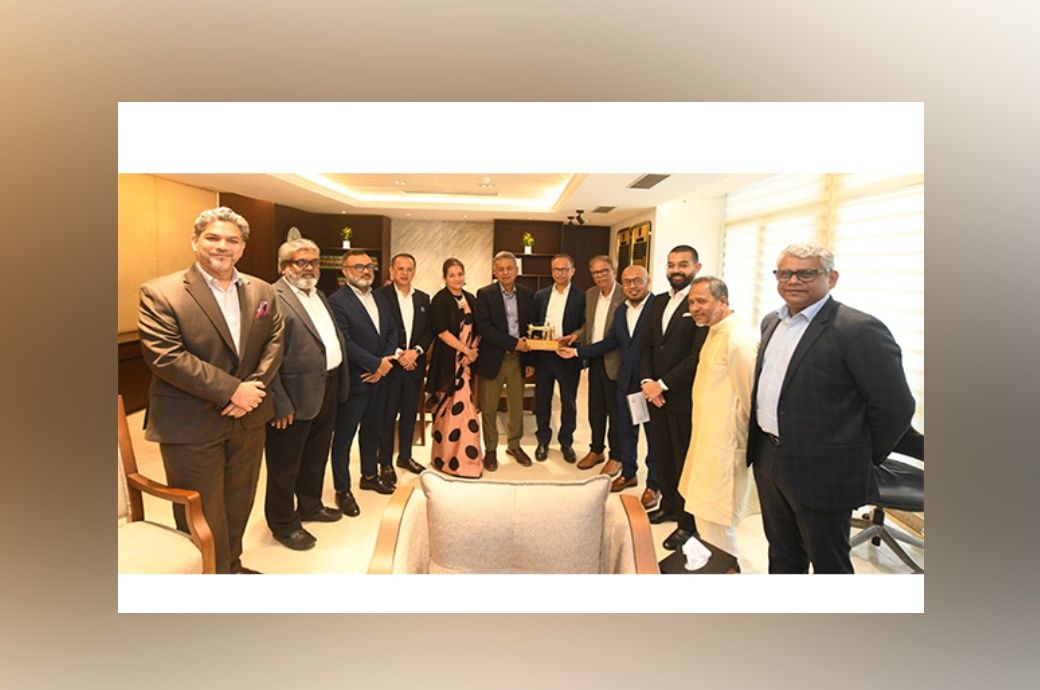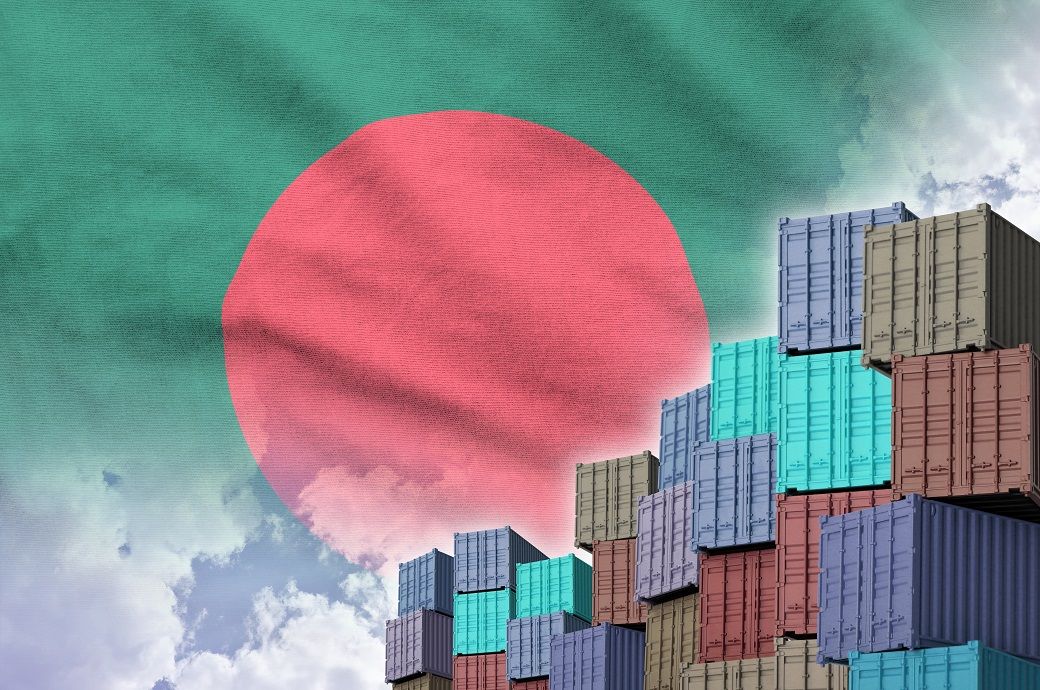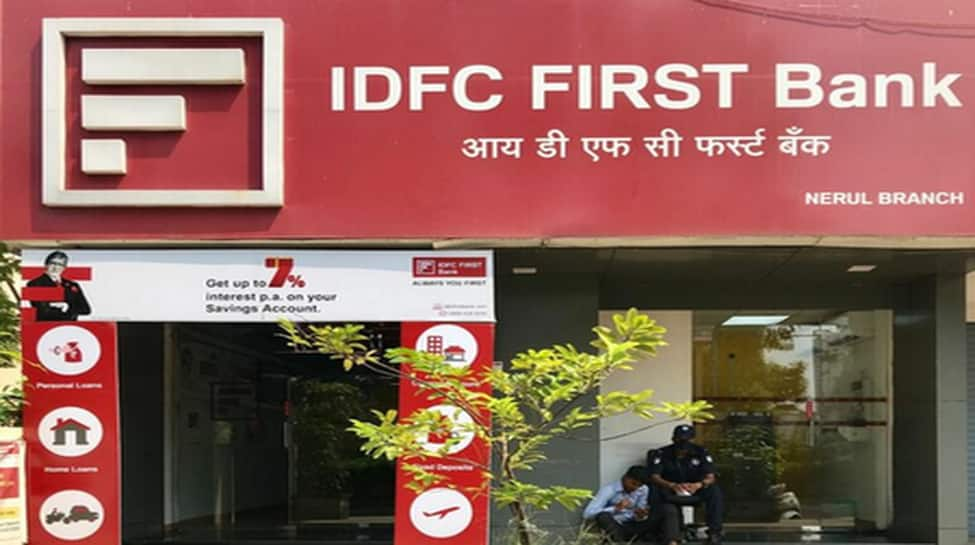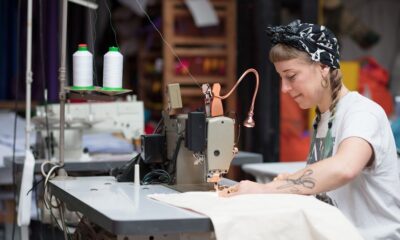Fashion
Indian textile industry hails GST reforms, urges review of ₹2,500 slab
Sanjay K Jain, chairman of ICC’s National Textiles Committee, highlighted the broader implications: “The long-standing demand for removal of the inverted duty structure in MMF yarn and fabric has been met—bringing the entire chain under 5 per cent GST, in line with cotton. However, garments priced above ₹2,500 will become around 6 per cent costlier. The use of manmade textiles is expected to rise as a result.”
India’s textile and retail sector has welcomed the GST rationalisation, with industry bodies lauding removal of inverted duty and alignment of MMF with cotton at 5 per cent.
CMAI, RAI and NITMA hailed the move as transformative, though concerns remain over garments and footwear above ₹2,500 being placed in the 18 per cent slab.
Stakeholders urged the Council to adopt a uniform 5 per cent rate.
The Clothing Manufacturers Association of India (CMAI) said the changes address two major demands—removal of inverted duty and equalisation of cotton and MMF chains at 5 per cent. “The increase of the 5 per cent limit from ₹1,000 to ₹2,500 is also an extremely positive move,” CMAI said, while urging the Council to reconsider taxing garments above this level at 18 per cent. “Garments above the price of ₹2,500 are also consumed in large numbers by the common man and middle class, especially woollen clothing, occasion wear, Indian traditional clothing and handlooms,” it added.
Suditi Industries Ltd, owner of kidswear brand Gini & Jony, said the revisions provide dual growth drivers—stronger consumption and improved margins. Commenting on the company’s expansion, Harsh Agarwal, CEO of Gini & Jony, said: “This is a pivotal time for Suditi. With the integration of Gini & Jony, we are no longer just a textile manufacturer—we are transforming into a consumer-facing retail powerhouse. The upcoming GST reforms and strengthening domestic consumption create a strong runway for growth.”
The Retailers Association of India (RAI) termed the move to a two-slab framework “a vital step towards simpler and fairer taxation” but warned against flaws in price-based thresholds. RAI said: “Such slabs create distortions, promote grey market activity, harm organised retail and discourage domestic manufacturing. All garments and footwear should ideally be taxed at 5 per cent, or at the very least, a more reasonable price threshold should be established.”
For the Northern India Textile Mills Association (NITMA), the decision marks a “transformative milestone” for India’s MMF sector. NITMA president, Sidharth Khanna, said: “We are pleased to share that the long-standing issue of the inverted duty structure in GST for MMF textiles has been successfully addressed. These changes will significantly lower costs across the MMF and technical textiles value chain, enhancing efficiency and export competitiveness.”
Raghunath Mannil Balakrishnan, chief executive officer at Mafatlal Industries Limited, opined, “The 56th GST Council reforms bring both opportunities and challenges for the textile and apparel sector. While the increase of GST on coal from 5 per cent to 18 per cent will push up fabric processing costs, the reduction of GST on yarn from 12 per cent to 5 per cent should partially balance this out. As a result, fabric prices overall may not see a significant change. What is particularly encouraging is the reduction of GST on garments priced below ₹2,500 from 12 per cent to 5 per cent. This is a consumer-friendly move that will make mid-market apparel more affordable, stimulate demand, and strengthen growth in this critical segment. For an industry that is both price-sensitive and volume-driven, such measures can provide the much-needed impetus for growth. At Mafatlal, we see this as a positive step that can support industry volumes while ensuring affordability for a wider base of consumers.”
The Southern India Mills’ Association (SIMA) also hailed the GST rationalisation as a long-pending demand fulfilled, calling it a breakthrough for the MMF textile value chain. Dr. S K Sundararaman, chairman, SIMA, said: “This bold and historic reform slots the entire MMF chain at 5 per cent, addressing raw material structural issues that had made the poor man’s clothing more expensive.”
He noted that global MMF accounts for 70 per cent of fibre consumption but only 30 per cent in India, largely due to earlier tax distortions. He added: “The government has set a vision to grow textiles from $172 billion to $350 billion and exports from $37 billion to $100 billion. Polyester will be the main growth engine to achieve this vision.”
Dr. Sundararaman also appreciated the establishment of fibre neutrality and the introduction of 90 per cent provisional refunds for raw material duties, saying these measures would “boost domestic consumption by 7–10 per cent in the near term and help India withstand abnormal tariffs imposed by the US.”
The Indian textile industry has collectively thanked the government for addressing long-standing demands, while pressing for further rationalisation to ensure all garments and footwear are taxed at a uniform rate.
Fibre2Fashion News Desk (KD)
Fashion
US’ Old Navy launches little navy, a new newborn essentials collection

“We designed this collection with parents in mind. Shopping for a newborn, as a gift or for your own, should feel joyful and easy. Everything is intended to be mixed together and matched — it’s fun, it’s emotional, and the value is incredible.”. – Sarah Holme, Head of Design & Product Development for Old Navy.
Old Navy has introduced Little Navy, a new collection of newborn essentials designed to simplify early-stage shopping and gifting.
The range includes layettes, hats, booties and mix-and-match basics in soft, seasonless colours and cosy fabrics.
Sized for babies up to 24 months, the line focuses on comfort, versatility, emotional appeal and strong value for modern parents.
Little Navy goes beyond onesies, offering layettes, hats, booties, and more, all in one convenient collection and no extra searching required. It features a soft, seasonless color palette, cozy fabrics, and versatile styles made for newborns and babies up to 24 months, with sizing that allows Little Navy to grow with baby.
Note: The headline, insights, and image of this press release may have been refined by the Fibre2Fashion staff; the rest of the content remains unchanged.
Fibre2Fashion News Desk (RM)
Fashion
Bangladesh’s BGMEA seeks policy reforms, release of pending incentives

They said bank audit procedures have stalled numerous applications. Around Tk 57 billion in incentives for the textile and apparel sector remain unsettled in fiscal 2025-26, creating acute liquidity pressure and affecting exports.
Bangladesh trade body BGMEA representatives recently met Finance Minister Amir Khasru Mahmud Chowdhury and urged him to release pending cash incentives without waiting for quarterly release schedules and simplify the disbursement process.
They said bank audit procedures have stalled numerous applications.
They also raised concerns over loan rescheduling and working capital.
The authorities were requested to disburse incentives upon application submission instead of waiting for quarterly release schedules, according to a release from the trade body.
BGMEA vice president Mohammad Shihab Uddoja Chowdhury raised concerns over loan rescheduling and working capital. He said banks often reschedule loans to maintain non-performing loan ratios, but fail to provide the working capital factories need to resume operations.
He proposed that banks pair rescheduling with working capital support to create a win-win outcome, allowing factories to operate and repay loans. The finance minister agreed with the proposal.
BGMEA leaders also called for business facilitation and lower operational costs to help Bangladesh remain competitive in the global market. They sought policy support to remove obstacles in customs, ports and other administrative layers and to ensure an investment-friendly environment.
Fibre2Fashion News Desk (DS)
Fashion
Bangladesh’s CPD calls for reforms in biz & tax climate, trade deals

Bangladesh think tank Centre for Policy Dialogue has called for major reforms in business environment, tax collection, trade deals and FDI management, cautioning that the country’s post-election economic transition may be at risk without evidence-based decisions and strong accountability.
A CPD study identified ‘leaking revenue’ as the weakest area across all decision-making indicators.
Source link
-

 Business6 days ago
Business6 days agoHouseholds set for lower energy bills amid price cap shake-up
-

 Entertainment1 week ago
Entertainment1 week agoTalking minerals and megawatts
-

 Business6 days ago
Business6 days agoLucid widely misses earnings expectations, forecasts continued EV growth in 2026
-

 Sports1 week ago
Sports1 week agoSouth Africa thrash India by 76 runs in T20 World Cup Super 8 – SUCH TV
-

 Business1 week ago
Business1 week agoHaryana Govt bars IDFC First Bank, AU Small Finance Bank over alleged Rs 590 crore fraud
-

 Sports7 days ago
Sports7 days agoTop 50 USMNT players of 2026, ranked by club form: USMNT Player Performance Index returns
-

 Sports1 week ago
Sports1 week agoEileen Gu comments on Alysa Liu’s historic gold medal
-

 Politics1 week ago
Politics1 week agoSupreme Court ruling angers Trump: Global tariffs to rise from 10% to 15%


















